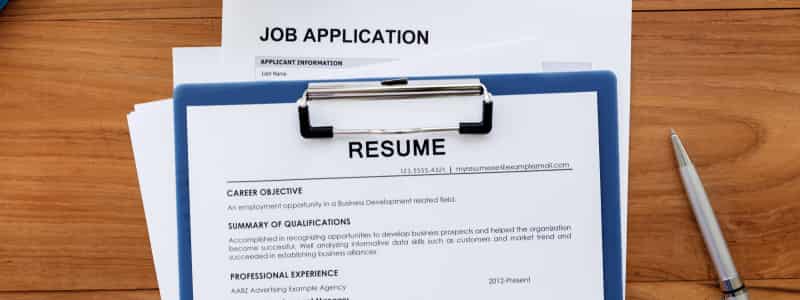Your resume (sometimes called your ‘CV’), is your most important document when applying for a new job. Think of your resume as a marketing tool to show prospective employers who you are and how your skills, education, and experiences match the position you’re applying for.
Name and Contact Information
Every resume should begin by listing your full name, a professional-looking email address and your phone number. Your street address is optional. Don’t include any other personal information such as your race, religion or age.
Summary Paragraph
Next, you should include a short summary of your qualifications and accomplishments throughout your career. This should indicate who you are, where you’ve studied and/or worked, and what you bring to the job. Two or three sentences is fine. Remember to tailor your summary paragraph to the position you are applying for.
Education
You want to work backward and list your most recent educational experiences. For each experience, include the qualification you received, where you studied, when you began and finished, and any special awards or other achievements.
Employment History
This is one of the first things your future employer wants to see. this is your opportunity to showcase the value you’ve brought to former employers. Insert bullet points under each job listing your roles, responsibilities, and strongest and most relevant achievements.
Because Resumes are typically one or two pages, your resume should only contain information that relates to the job for which you are applying. So ask yourself whether each sentence is actually relevant for the employer. Don’t list any hobbies on your resume. The only exception is whether this hobby relates to the company.
Similarly, with education, your employment history should be in reverse chronological order. Think about your recent jobs, internships, and volunteer work. Those without much work experience might want to include clubs and sports teams when applicable. For each, you want to include the name of the company, the position, and dates of employment.
Skills
This is optional but if you have any notable skills, especially those applicable or desirable for candidates. Do you speak another language, or are you proficient in a type of computer software? This is the place to list them.
References
Finally, your resume should list at least two people who can positively recommend you as an employee. Think of someone who you have previously, or currently work with. You should include their name, title and how they can be contacted. You may also wish to include a recommendation letter, where your former employer can formally endorse you for the role you are applying for.
Final Thoughts
Now that you have a good idea of what goes on a resume and how to make each section attractive to employers. Follow these steps above and you’ll have a great resume that shows your future employer why they should interview you immediately.





